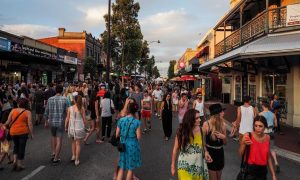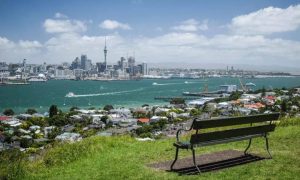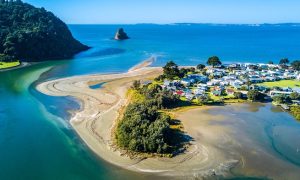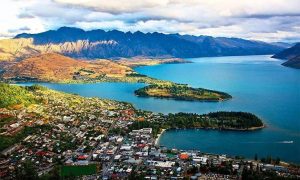New Zealand's stunning natural beauty, high quality of life and stable social environment attracts people from all over the world.immigrants. However, the applicationNew Zealand immigrationIt doesn't happen overnight. Behind every successful immigrant is a unique experience. In this article, we will take you through the real stories of 10 immigrants to give you an insight into theNew Zealand Immigration Requirements, and how to find the right path through the application process.
One,skilled migrant: Professional skills are the ticket
1. IT Engineer's Tale: Using the Tech Checklist Wisely
Mr. Lee, a software engineer, found that his occupation appeared on New Zealand's long-term skills shortage list. In preparation, he successfully applied for skilled migration by improving his IELTS score (to meet the minimum requirement of 6.5) and putting together a complete set of documents certifying his professional qualifications. He emphasizes, "Skills matching is key, and it's especially important to keep up with the changing needs of the Immigration Department."
2. Shortcuts for nurses: high demand in the medical field
Mary from the Philippines is a Registered Nurse and the high demand in New Zealand's healthcare sector made her application go very smoothly. She shares, "Aside from meeting the qualification requirements, I completed my Nurse Registration Council of New Zealand (NCNZ) certification ahead of time, which made me stand out in the interview."
II. Family reunification: kinship is the greatest motivator
3. Mother-daughter reunions: the challenges of parent reunification visas
Ms. Zhang, whose daughter has settled in New Zealand for many years, achieved family reunification through a parent reunification visa. Although she waited for almost two years, she said, "Planning your finances in advance and ensuring your children's financial sponsorship is the key to overcoming the policy restrictions."
4. The Sweet Conundrum of Spouse Visas
Amy and her husband, a multinational couple, encountered many difficulties when applying for a spouse visa. Amy shared, "We provided detailed records of our life together, including rental contracts, travel photos, and supporting letters from family and friends. These details convinced the immigration officer that our relationship was real and stable."
III. Entrepreneurship andinvestment immigration: Funding is a knockout
5. Restaurant Owner's Entrepreneurial Dream
Mr. Wang, who owns a Chinese restaurant in New Zealand, achieved his immigration through an entrepreneurial visa. He cautions, "The business start-up plan is crucial and must demonstrate the viability of the business and its contribution to the local economy."
6. investment immigration: From Assets to Identity
Indian entrepreneur Shami passedinvestment immigrationSuccessfully moved to New Zealand. He invested NZ$5 million into a green energy project. He says, "Immigrant investor is not only about financial considerations, but also about demonstrating a commitment to long-term development in New Zealand."

IV. Student migrants: education as a springboard
7. Turnaround for International Students: From Student Visa to Work Visa
After completing his master's degree in engineering in Auckland, Xiao Lin found a job through the Graduate Work Visa and successfully applied for skilled migration. He advises, "Choose a major in New Zealand's shortage areas and take as many internships as you can to lay a good foundation for your future job."
8. The Chef's Path to Practice
As one of the shortest professions in New Zealand, chef immigrants have obvious advantages. Ali from Malaysia studied culinary arts, successfully got a job offer and eventually got permanent residency. He said, "Practical experience is important, and references from employers will add points to the application."
v. special category: seizing the opportunity
9. The Artist's Path to Immigration
Ms. Han is a professional potter who was able to migrate through New Zealand's Exceptional Talent Visa. She shares, "My work has market recognition in New Zealand, which gave me special support in my application."

10. High demand for construction workers after disasters
New Zealand is prone to earthquakes and there is a strong demand in the construction field. Carlos from Brazil was hired by a Christchurch-based company with his experience in building restoration. He says, "Having practical work experience is a guarantee of success for migrants, especially in high-demand fields."
VI. Matters to be noted in the migration process
1. Keeping up with policy changes
New Zealand's immigration policies are frequently adjusted, and it is vital to have up-to-date information. For example, the scoring thresholds and skills lists for skilled migrants are updated from time to time.
2. Prepare language skills in advance
Almost all immigration categories require proof of English proficiency. Preparing for IELTS, PTE or other recognized English tests is a step that should not be overlooked.
3. Finding a Matching Immigration Category
Requirements for different immigration categories vary widely. Choose the most suitable method according to your conditions, such as skilled immigration, entrepreneurship immigration or family reunification immigration.
4. Professional Consulting
If confused about the application process, seek the help of a professional immigration consultant who can provide customized advice on your application.
VII. Summarizing: Finding Your Path to Immigration
Every successful migrant has their own story to tell, the key is finding the right path for you and being well prepared. New Zealand offers a wide range of options for applicants from different backgrounds, from skilled shortage occupations to entrepreneurial ventures, to family reunification or special talents. We hope that through these real-life experiences, you can find the immigration method that best suits your conditions and start your own!New Zealand immigrationLife.






